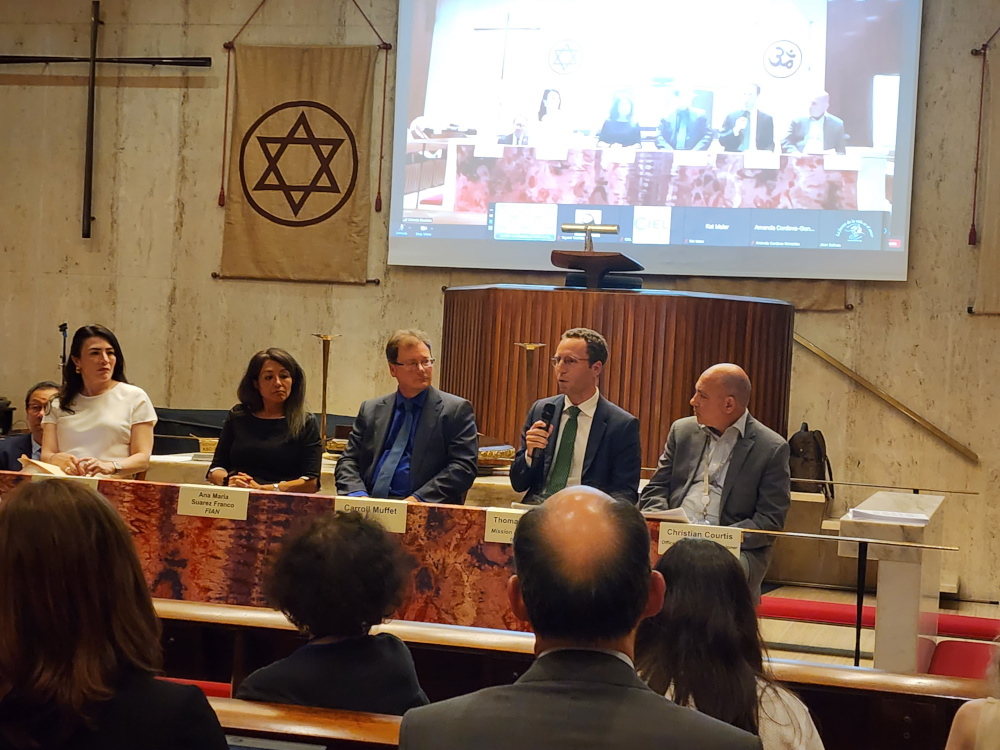
The Maastricht Principles on the Human Rights of Future Generations were adopted in early 2023 and supported by almost sixty leading experts in legal and human rights from different parts of the world. The principles were officially launched in New York City on 13 July during the High Level Political Forum (HLPF) at an event hosted at the Church Center by Liberato Bautista, President of the Conference of Non-Governmental Organizations with Consultative Status at the UN and Assistant Secretary General for the United Nations and International Affairs of the General Board of the United Methodist Church.
During the event, organizations, experts and Member States emphasized the significance of the newly adopted Maastricht Principles. These principles recognize the human rights of future generations and are considered a breakthrough for both future generations and individuals currently fighting to safeguard our shared future.
The aim of the Maastricht Principles is to provide clarity on how international human rights law applies to future generations. They offer guidance to decision-makers on how to effectively incorporate the human rights of future generations into concrete laws, charters, and declarations, based on the legal framework developed over the past 70 years.
The Principles affirm that human rights, including the right to a clean, healthy, and sustainable environment, are not bound by time constraints. They fully apply to future generations.
Since 2017, a group of legal and human rights experts from around the world engaged in a six-year process to examine how human rights law applies to the human rights of future generations. This involved drawing from extensive legal research, international treaties, national constitutions, legislation, the knowledge of Indigenous Peoples from various continents, doctrines from major faith traditions representing the majority of the world’s population, and consultations with members of key social movements and over 200 experts specializing in diverse legal and philosophical disciplines. The outcome of this process is the Maastricht Principles on the Human Rights of Future Generations.
While the full impact of the Maastricht Principles will become evident over time, the previous principles in the Maastricht series (including the Maastricht Principles on Extraterritorial Obligations) have already played a transformative role in the legal landscape.
The Principles state that in order to protect future generations, we must first acknowledge that they are inherently covered by existing human rights law. Therefore, respecting, protecting, and upholding the rights of future generations is simply a matter of upholding the core principle of human rights law: equality and non-discrimination.
Certainly, these Principles resonate with the principles of Catholic theology and social teaching, which hold that life and the earth are gifts from God and that humans are co-creators and stewards of the earth and all its inhabitants. As Vincentians, we will hope that intergenerational solidarity and the common good will be enhanced by the implementation of the Maastricht Principles on the Human Rights of Future Generations and that they will influence national and regional international governance processes, decision-making, standard-setting and jurisprudence, as well as promote social mobilization to advance the human rights of future generations, leading to a world we want!
For more information about the Principles, please visit: https://www.rightsoffuturegenerations.org/the-principles
MaryAnn Dantuono, International Association of Charities






Great article,
MaryAnn! Very informative!! And hopefully hopeful!!